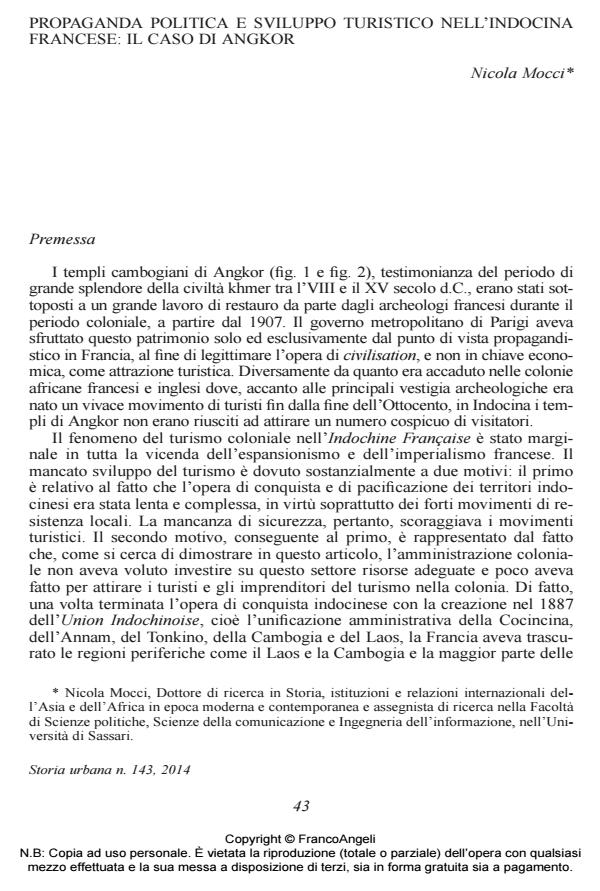Political propaganda and tourism development in French Indochina: the case of Angkor. Parole chiave: French colonial empire, Indochina, Tourism, Propaganda, Angkor
Journal title STORIA URBANA
Author/s Nicola Mocci
Publishing Year 2014 Issue 2014/143
Language Italian Pages 25 P. 43-67 File size 296 KB
DOI 10.3280/SU2014-143003
DOI is like a bar code for intellectual property: to have more infomation
click here
Below, you can see the article first page
If you want to buy this article in PDF format, you can do it, following the instructions to buy download credits

FrancoAngeli is member of Publishers International Linking Association, Inc (PILA), a not-for-profit association which run the CrossRef service enabling links to and from online scholarly content.
Using documents from French archives, the article analyses the initial enterprises of the mainly French entrepreneurs in developing colonial tourism around the Cambodian Angkor’s temples at the beginning of the twentieth century. These documents clearly show the colonial administration’s lack of interest in developing this sector, and how its officials only wished to exploit Angkor’s archaeological heritage for political propaganda in France. In fact, compared to its more active role in the other African colonies, the metropolitan government did practically nothing to develop tourism in this region, merely financing an extremely small amount of money to provide infrastructures to welcome the archaeologists involved in temple restoration, and the very few travellers who came to Angkor. Indeed, the French government’s main objective was to increase consensus on the idea of colonial expansion, which was increasingly under threat from internal opposition and local resistance, in an attempt to show its role in pacification of the area, and to celebrate the merits of civilisation.
Keywords: Impero coloniale francese, Indocina, Turismo, Propaganda, Angkor
Nicola Mocci, Propaganda politica e sviluppo turistico nell’Indocina francese: il caso di Angkor in "STORIA URBANA " 143/2014, pp 43-67, DOI: 10.3280/SU2014-143003